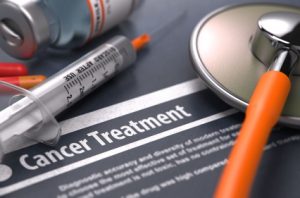While everyone is aware of the fantastic job NHS workers, doctors and clinicians have carried out during the pandemic, this does not exempt the medical profession from medical negligence claims. There will obviously be other factors to take into consideration but medical negligence claims have not stopped as a consequence of the pandemic. As you can imagine, there are numerous issues to take into consideration when pursuing a claim.
NHS waiting list
Healthcare is devolved in England, Scotland, N.Ireland and Wales. The information in this article relates to NHS England although many of the issues are relevant across the board. The first thing to remember is the NHS Constitution which states that:-
- 92% of people waiting for treatment should receive this within 18 weeks
- Ideally those requiring urgent cancer/cardiac surgery should wait no longer than 28 days
Even prior to the COVID pandemic there was a growing backlog of patients waiting for treatment but this was nowhere near COVID pandemic levels. In April 2021 it was estimated that a staggering 4.7 million people were waiting for hospital treatment under NHS England. Within this figure were approximately 388,000 people who had waited more than one year to even start treatment.
When you compare the pre-pandemic figure of just 1,613 people waiting more than a year, this put it into perspective. This figure is startling but firmly put in the shade by estimations that up to 10 million people will be waiting for hospital treatment by the end of 2021. How long will this backlog take to address? Well, NHS providers believe it could take up to 5 years to tackle the waiting list. This would likely involve evening and weekend surgeries being added to an already crowded NHS diary.
Breach of duty of care
Any compensation claim involving medical negligence must involve the breach of a practitioner’s duty of care. This is the fundamental gangplank of any compensation claim. How is this measured when it comes to medical negligence?
In what is known as the “Bolam” principle, the test for negligence asks the same questions of similarly qualified medical practitioners. If a “responsible body” of health professionals agreed with the treatment administered, then it would be difficult to prove negligence. Alternatively, if the health professionals disagreed with the treatment administered, or the standard of care, this opens the door to proof of negligence.
There is a further test which is used, known as the “Bolitho” principle, which ensures that any defence must pass the logical analysis test. This means that fairly vague defences are held to scrutiny and must be accompanied by evidence.
Causation
If you are pursuing a claim for medical negligence you will come across the term causation. This is the second element of a medical negligence claim. It must be proven that, on the balance of probabilities, failure to administer the appropriate treatment led directly to the patient being harmed. There are perfectly bona fide situations where the harm suffered by the patient would still be probable even if the health professional had taken the appropriate action.
So, in order to pursue a compensation claim, you need to prove negligence and causation. It is also interesting to note the purpose of compensation in this situation. It is simply a means of getting the victim back to the physical, mental and financial position (if possible) they enjoyed prior to the negligent care. Unfortunately, people often assume that compensation allows the victim to enjoy the high life when this is very much not the case.
Pursuing compensation against NHS England
It is estimated that the NHS currently has outstanding personal injury compensation claims in excess of £80 billion. Even before the full effect of COVID hit the NHS, there were around 10,000 new personal injury claims each year. In order to speed up the payment of legitimate compensation, NHS Resolution was created. This is a body which considers breach of duty of care and causation which resulted in physical/mental injuries. It is safe to say that this service will be under significant pressure post-COVID.
Those looking to pursue compensation from NHS England can represent themselves in communications with NHS Resolution. However, it is advisable to consider the services of a personal injury claims solicitor in what can be complicated negotiations.
One further note of interest, many people are not aware but the NHS is self-insured. This means that all compensation payments/expenses are paid from the NHS budget as formal insurance cover is not possible.
Gathering evidence to sue for compensation
It is important to remember that many personal injury claims companies will offer a no-win no-fee arrangement where they believe you have a good chance of success. The industry has in the past been accused of making frivolous claims but this relatively high evidence bar suggests otherwise. We also know that medical negligence claims tend to involve significantly greater costs than for example road traffic accidents. So, while the personal injury solicitor may offer a no-win no-fee arrangement they will also negotiate a fee to be deducted from the compensation.
Typical evidence required when making a claim for medical negligence includes:-
- Details of treatment
- Details of injuries
- Details of incorrect/negligent advice
- Contradictory advice from a third-party medical practitioner
- Witness statements
Completion of the relevant paperwork to agree to treatment, which turned out to be negligent, does not protect the medical practitioner. Unfortunately, some of the more complicated medical negligence claims can take years to complete. It is also common for those pursuing compensation to undertake additional medical examinations by experts in relevant fields. Where there is strong evidence of negligence, it is likely that interim payments would be made to cover general damages and special damages.
Is it ethical to pursue the NHS for compensation?
It is an unfortunate fact of life that accidents do occur and negligence can lead to significant compensation payments. Even prior to the pandemic, many people were concerned about the ethics of pursuing the NHS for personal injury compensation. Often accused of “taking money from the NHS budget”, it is only when negligent parties are held to account that change occurs. So, yes it may not sit well with many people looking to pursue compensation but it will instigate changes going forward.
Historically, some NHS Trusts have been accused of secrecy with regards to negligent activity in the past. We regularly hear stories of individuals and families having to pursue NHS bodies for years for the “truth” regarding instances of mistreatment. Consequently, you will find that many of those pursuing compensation from the NHS are forced to do this in order to find the truth.
Ongoing treatment
There is a general misconception that those injured as a consequence of negligence by the NHS are obliged to receive treatment from the NHS. This is an issue which will be a hot topic going forward with NHS waiting lists expected to top 10 million by Christmas 2021. The truth is that those who require medical treatment as a consequence of negligence are not obliged to go through the NHS. Obviously, where treatment can be given in a timely manner this would normally be the first choice but the Law Reform (Personal Injuries) Act 1948 offers an alternative. Victims can recover the “reasonable” cost of private medical treatment for injuries caused by negligence.
As NHS waiting lists continue to grow, we can only imagine the potential increase in compensation claims going forward for those, legitimately, requiring private medical treatment.
Challenges ahead for the NHS
The reality is there are no winners for the general public when it comes to the challenges of COVID and the ever-growing number of people waiting for NHS treatment. In many ways the NHS is fighting a losing battle with the waiting list expected to increase from 4.7 million up to a staggering 10 million people. At this moment in time it is difficult to see how the service will cope. However, this should not deter those who have received negligent treatment resulting in physical or mental injuries.
Sometimes it is easy to forget the challenges of the victims of negligent treatment. Some of them have received life changing injuries impacting their standard of living, family life, relationships, income and many more aspects of their everyday life. The majority of legitimate claims are settled out of court as a means of reducing legal expenses and ensuring that victims receive vital funding as soon as possible.
Summary
Many people seem to have the impression that all medical compensation claims are simply waved through and funds paid out. This is not the case. Firstly, personal injury claim solicitors will typically not pursue frivolous/borderline claims under their no-win no-fee arrangement. This is the first level of filtering to ensure that only legitimate claims make it to the next stage. Even then, there is still no guarantee of success and all claims will be scrutinised by numerous party. It is only when negligence has been proven, and causation demonstrated, that we move on to the settlement process.
While pursuing the NHS for compensation may not sit well with some people, it is an important part of the continuous improvement in services. It will also help reduce compensation claims going forward, even though there is currently in excessive £80 billion of unproven claims still outstanding.



